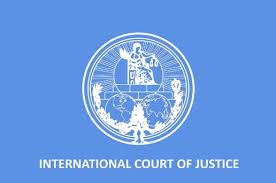– Definitions under International Law Blogs
Definitions under International Law
International law, governing relations among nations and international actors, involves certain foundational concepts. Understanding these key terms helps clarify how international law operates.
1. State
Definition:
A State is an entity with a defined territory, a permanent population, a government, and capacity to enter into relations with other states.
Case Illustration:
In the Island of Palmas Case, the tribunal clarified that sovereignty over a territory requires actual and continuous display of authority, not just a claim.
Significance:
A state must effectively control its territory and population to be recognized under international law.
2. Sovereignty
Definition:
Sovereignty means a state's supreme authority and independence within its territory, free from external interference.
Case Illustration:
The Nicaragua v. United States case reaffirmed the principle of sovereignty, condemning unlawful intervention by the U.S. in Nicaragua’s affairs.
Significance:
Sovereignty is fundamental in international law, dictating that no state may interfere in another’s domestic matters.
3. Jurisdiction
Definition:
Jurisdiction is the authority of a state to legislate, adjudicate, and enforce laws within its territory or over its nationals.
Case Illustration:
The Lotus Case established that a state has jurisdiction over acts occurring within its territory and, under certain conditions, over its nationals abroad.
Significance:
Jurisdiction defines the scope of legal power a state exercises domestically and internationally.
4. Treaty
Definition:
A treaty is a formal agreement between states that creates binding legal obligations.
Case Illustration:
The North Sea Continental Shelf Cases underscored that treaties must be interpreted in good faith according to the ordinary meaning of the terms.
Significance:
Treaties form the backbone of international cooperation and lawmaking.
5. Recognition
Definition:
Recognition is the acknowledgment by one state of another entity’s status (e.g., statehood or government).
Case Illustration:
In the Reparation for Injuries advisory opinion, recognition was important for determining if the UN could claim reparations on behalf of its agents.
Significance:
Recognition affects diplomatic relations and legal interactions between states.
6. Customary International Law
Definition:
Customs are practices accepted as law due to consistent state behavior and a belief they are legally obligatory.
Case Illustration:
The North Sea Continental Shelf Cases emphasized that for a custom to be law, there must be consistent state practice and opinio juris (belief in legal obligation).
Significance:
Custom complements treaties and binds all states, even if not parties to specific agreements.
7. Immunity
Definition:
Immunity shields states or their officials from legal processes in foreign courts.
Case Illustration:
The Pinochet Case examined whether a former head of state could claim immunity from prosecution for human rights violations.
Significance:
Immunity balances state sovereignty with accountability under international law.
8. Use of Force
Definition:
The use of force refers to armed actions by one state against another.
Case Illustration:
The Corfu Channel Case clarified that use of force must respect sovereignty and cannot be arbitrary.
Significance:
Rules on use of force regulate when states may engage in military actions.
Summary Table
| Term | Definition | Key Case | Importance |
|---|---|---|---|
| State | Entity with territory, population, government | Island of Palmas | Basis of international legal personality |
| Sovereignty | Supreme authority within territory | Nicaragua v. US | Prevents unlawful interference |
| Jurisdiction | Authority to legislate and enforce laws | Lotus Case | Defines legal power scope |
| Treaty | Formal binding agreement between states | North Sea Continental Shelf | Facilitates cooperation and obligations |
| Recognition | Acknowledgment of state status | Reparation for Injuries | Enables diplomatic and legal relations |
| Customary Law | Practices accepted as binding law | North Sea Continental Shelf | Universal binding norms |
| Immunity | Protection from foreign legal process | Pinochet Case | Balances sovereignty and accountability |
| Use of Force | Armed actions by a state against another | Corfu Channel Case | Regulates lawful military conduct |
In Simple Words:
International law is built on core ideas like what makes a state, how states respect each other’s control, and how they make agreements. Case law helps explain how these ideas work in real disputes.












comments